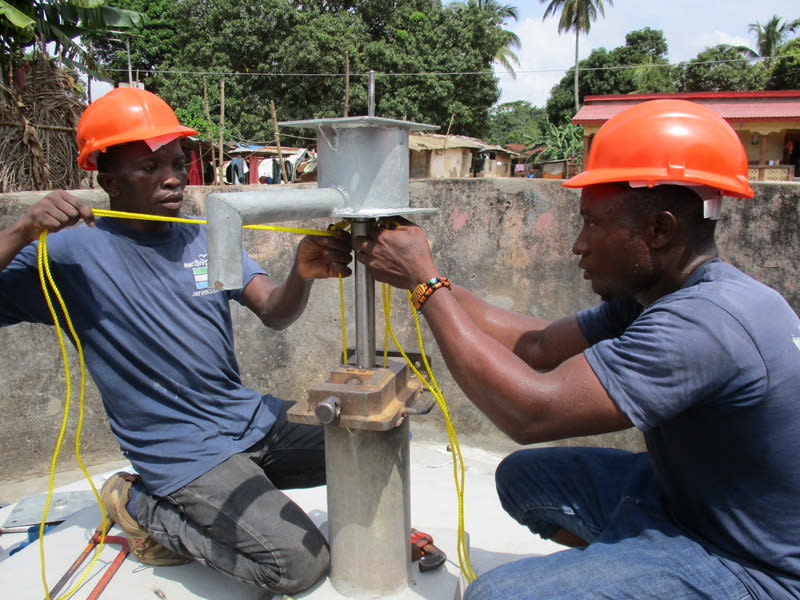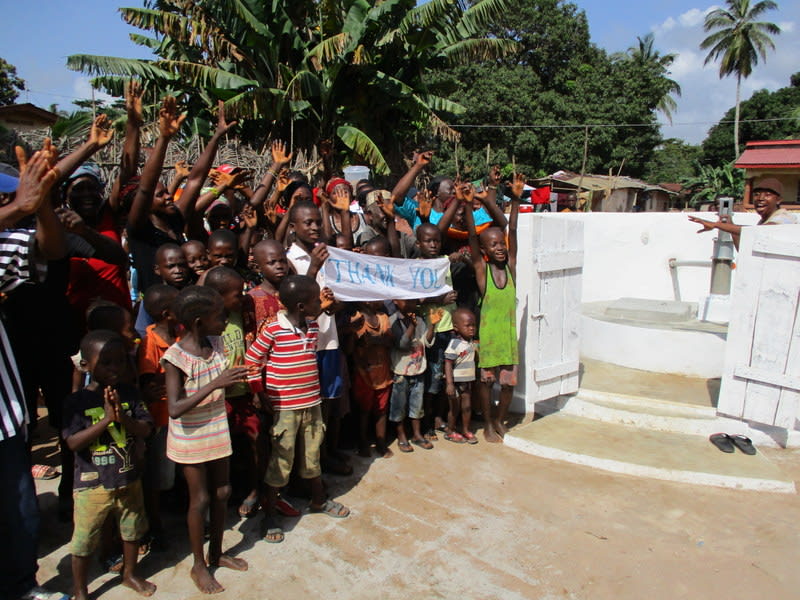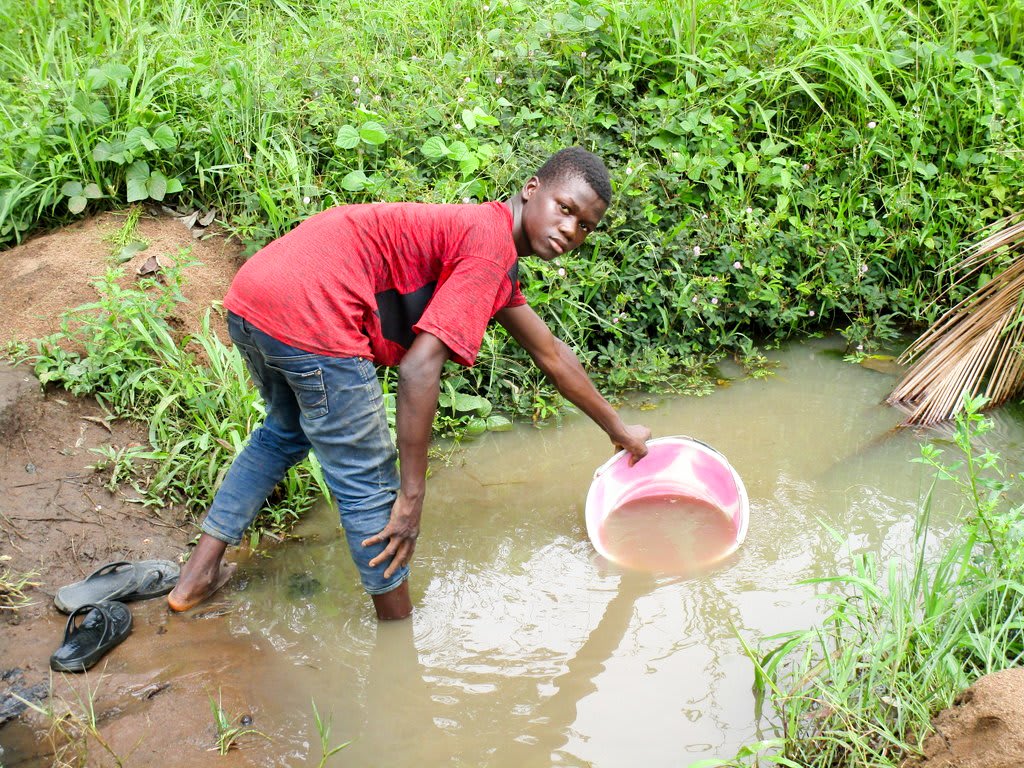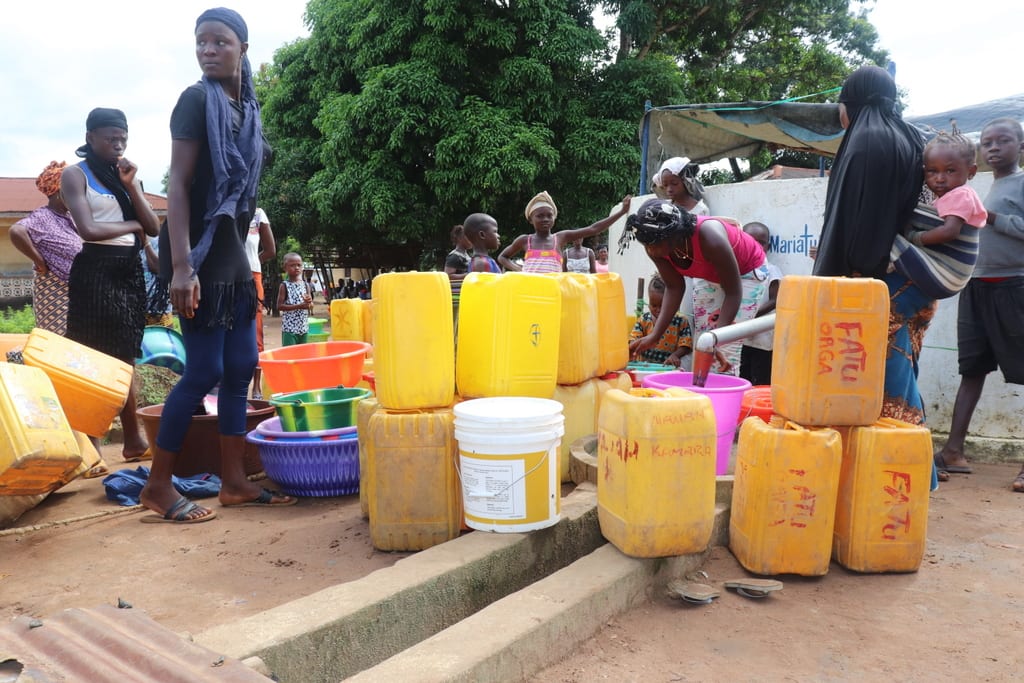The well in this part of Lungi Town goes dry at the same time every year. As the dry season approaches, the well is under stringent control. The high population coupled with the low levels of water creates massive crowds throughout the day. This is the area's only well. When there's no water available, people have to use alternative sources like the swamp.
These swamps are highly contaminated because they're hotspots for laundry and bathing activities.
Consequently, people spend a lot of time trying to get enough water for household chores. When water is scarce, they sacrifice using water to clean their homes. Children arrive late to school in the morning, and families are up late because it took too long to find water for cooking dinner.
Something needs to be done to ensure this water well in Lungi Town has reliable water every day of every year.
Lungi Town is a rural part of Kaffu Bullom. But there are some more urban homes recently built on the outskirts of this community of 859 people. Most homes are made of mud blocks and are concentrated in clusters. The community’s vegetation is steadily giving way to new homes, electricity poles, and cables. There is electricity available in these parts, but not everyone can afford to have it.
It is also located close to the sea and benefits from the gentle sea wind. So even when the weather is hot, people in this community are still protected by the gentle sea wind.
They have formidable football teams (Bakay FC and Abima FC). The community members are their biggest fans, following their teams to football events all around the area.
Each day in Lungi Town starts with the activity of water fetching. They need water to start the day's activities and to wash up for prayers that start at 5am. Kids are the ones most often sent to find water. Their other chores of washing dishes and sweeping the home should be done before they leave for school. These children go to school at 8am.
Most of the people here are petty traders and gardeners. There are also a few fishermen and vocational tradesmen as well.
We have yet to encounter a challenge in this community. The people’s contribution during this survey was high, and they ensured that we have the data we wanted for the completion of this report. We are very grateful to them for that.
What we can do:
Training
There will be hygiene and sanitation training sessions offered for three days in a row.
The hygiene and sanitation trainer decided it would be best to teach community members about the importance of handwashing, building and using dish racks, and other sanitation facilities. Pictures will be used to teach the community how to discern between healthy and unhealthy hygiene and sanitation practices. They will applaud the community for full latrine coverage but will also teach them how to improve by keeping flies out of the pits.
These trainings will also raise up a water user committee to manage and maintain the well. They will enforce proper behavior and report to us whenever they need our help in solving a serious problem, like a pump breakdown.
Well Rehabilitation
We want to work on the well located in the community. Our team has decided to do the hard work of drilling a borehole by hand in the bottom of this well, which will not only increase the water quantity but will ensure its quality, too. A new well pad will keep contaminants out, and a new India MkII stainless steel pump will provide easy and safe access to the clean water inside.
This community has been drinking dirty swamp water and suffering the consequences. With our rehabilitating this open well, the surrounding community will be provided with plenty of safe, clean drinking water.

 Protected Dug Well
Protected Dug Well



































